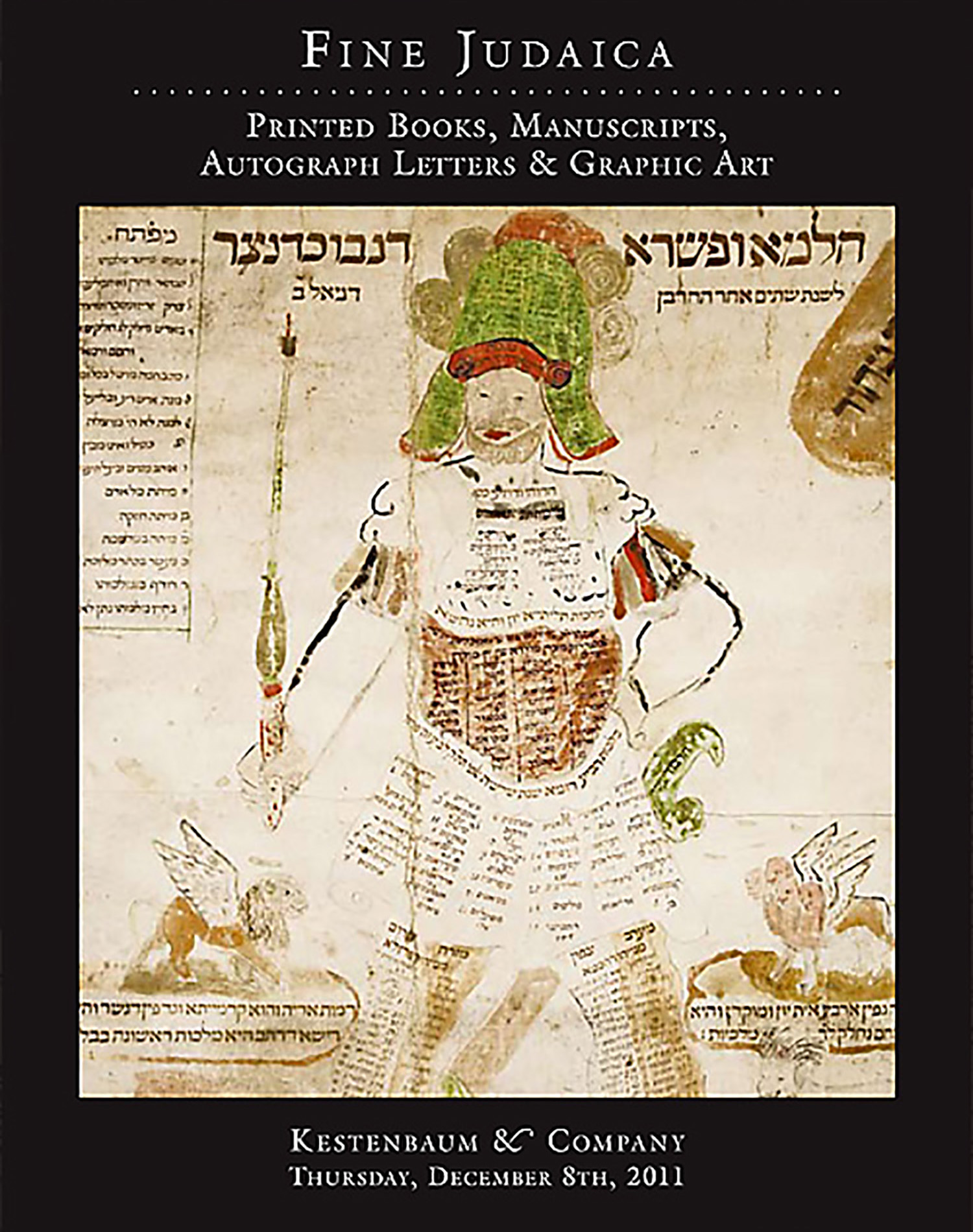Regitre des Deliberations du Consistoire des Israelites de la Circonscription de Winzenheim. Commencé le 28e Mai 1809, et fini le 24e Septembre 1810 ["Register of the Deliberations of the Consistory of Israelites of Winzenheim."]

AUCTION 53 |
Thursday, December 08th,
2011 at 1:00
Fine Judaica: Printed Books, Manuscripts Autograph Letters & Graphic Art
Lot 270
(FRENCH JUDAICA)
Regitre des Deliberations du Consistoire des Israelites de la Circonscription de Winzenheim. Commencé le 28e Mai 1809, et fini le 24e Septembre 1810 ["Register of the Deliberations of the Consistory of Israelites of Winzenheim."]
Winzenheim (Alsace): 1809-10
Est: $2,000 - $3,000
In some respects, this ledger falls into the typical genre of the Pinkas or Record-Book which almost every Jewish Community kept. What immediately marks the present Pinkas as unusual however, is the fact that it was written by the Imperial Fiat of Napoleon and open to the scrutiny of"Son Excellence le Ministre de l'Interieur" (f. 1r). - Hence the need for transparency might explain the fact that the entire manuscript without exception is written in French, without any use of Hebrew or Yiddish whasoever.
Recorded on f. 2r are the members of the Consistory, including the"Grand Rabbin, M. Lazare Hirsch," had signed an Oath of Fidelity to the"decisions doctrinales du Grand Sanhedrin." The reference is to the Sanhedrin that Napoleon imposed upon his Jewish subjects, with R. Joseph David Sinzheim of Strasbourg at its head. By erecting the consistory system in 1808, Napoleon formalized what until then had been a rather loose-knit communal structure, and at the same time insured the political loyalty of the Rabbinate, with the overnight transformation of rabbis into French civil servants. In addition to a"Grand Rabbin," each consistory consisted of three lay members. In the case of Winzenheim, these were Léon Bloch, Isaac Blum and Jacob Brunschweig. Indeed recorded on ff. 5-6 is a lengthy list of many other members of the Jewish community of Wintzenheim.
During this time period, Wintzenheim was the seat of the Department of the Upper Rhine (Department du Haut Rhin), thus the Jews resident in the surrounding towns were also obligated to contribute toward the upkeep of the Grand Rabbinat. For this reason, the ledger sheds specific historical light not only on the regional town of Wintzenheim, but more broadly, upon the Haut-Rhin as a whole (including the rather important town of Colmar, for one). According to the Napoleonic census of December 11, 1808, 536 Jews lived in Winzenheim, the number of Jews in the Consistory as a whole came to 10,000.
See JE, Vol. IV, p. 232 and cf. Z. Szajkowski, Jews and the French Revolutions (1970), nos.271, 285, 291-93, 299, 300.
